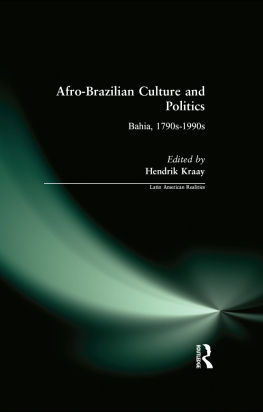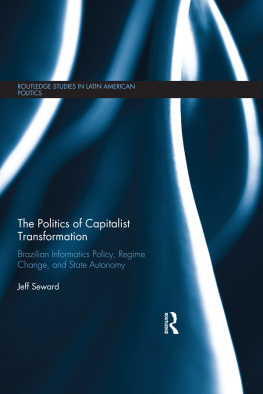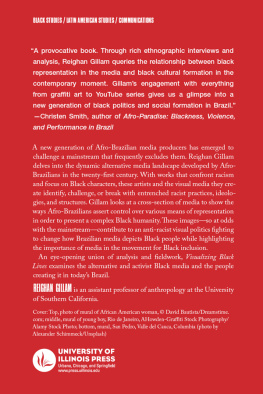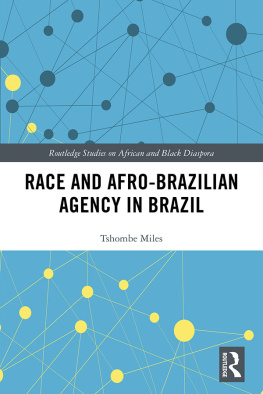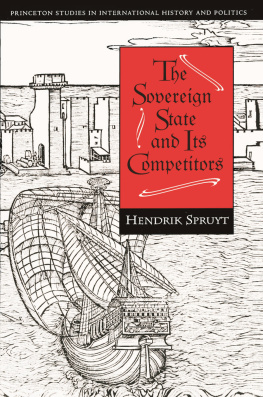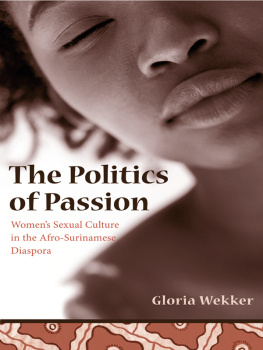Afro-Brazilian Culture and Politics
Robert M. Levine, Series Editor
BITITAS DIARY
The Childhood Memoirs of Carolina Maria de Jesus
Carolina Maria de Jesus, Author
Robert M. Levine, Editor
Emanuelle Oliveira and Beth Joan Vinkler, Translators
POLITICS AND EDUCATION IN ARGENTINA, 19461962
Mnica Esti Rein
AFRO-BRAZILIAN CULTURE AND POLITICS
Babia, 1790s-1990s
Hendrik Kraay, Editor
FIGHTING SLAVERY IN THE CARIBBEAN
The Life and Times of a British Family in Nineteenth-Century Havana
Luis Martnez-Ferndez
PILLAGING THE EMPIRE
Piracy in the Americas, 15001750
Kris Lane
THE SWEAT OF THEIR BROW
A History of Work in Latin America
David McCreery
(forthcoming)
THE SWORD OF HUNGER
A Latin American History
Roberta Delson and Robert M. Levine
(forthcoming)
Afro-Brazilian Culture and Politics
Bahia, 1790s to 1990s
Edited by
Hendrik Kraay
First published 1998 by M.E. Sharpe
Published 2015 by Routledge
2 Park Square, Milton Park, Abingdon, Oxon OX14 4RN
711 Third Avenue, New York, NY 10017, USA
Routledge is an imprint of the Taylor & Francis Group, an informa business
Copyright 1998 Taylor & Francis. All rights reserved.
No part of this book may be reprinted or reproduced or utilised in any form or by any electronic, mechanical, or other means, now known or hereafter invented, including photocopying and recording, or in any information storage or retrieval system, without permission in writing from the publishers.
Notices
No responsibility is assumed by the publisher for any injury and/or damage to persons or property as a matter of products liability, negligence or otherwise, or from any use of operation of any methods, products, instructions or ideas contained in the material herein.
Practitioners and researchers must always rely on their own experience and knowledge in evaluating and using any information, methods, compounds, or experiments described herein. In using such information or methods they should be mindful of their own safety and the safety of others, including parties for whom they have a professional responsibility.
Product or corporate names may be trademarks or registered trademarks, and are used only for identification and explanation without intent to infringe.
Library of Congress Cataloging-in-Publication Data
Afro-Brazilian culture and politics : Bahia, 1790s1990s / Hendrik Kraay, editor.
p. cm. (Latin American realities)
Includes bibliographical references and index.
ISBN 0-7656-O225-3 (alk. paper). ISBN 0-7656-0226-1 (pbk.: alk. paper)
1. BlacksBrazilBahia (State)Government relations. 2. Politics and cultureBrazilBahia (State)History. 3. Bahia (Brazil: State)Race relations. 4. Candombl (Cult)BrazilBahia (State) I. Kraay, Hendrik, 1964. II. Series.
F2551.A35 1998
981.4200496dc21
9731986
CIP
ISBN 13: 9780765602268 (pbk)
ISBN 13: 9780765602251 (hbk)
Contents
Hendrik Kraay
Hendrik Kraay
Dale T. Graden
Fayette Wimberly
Mary Ann Mahony
Joclio Teles dos Santos
Michel Agier
Kim D.Butler
ACI: Arquivo da Cria de Ilhus
AHEx/RQ: Arquivo Histrico do Exrcito, Requerimentos
AMCS: Arquivo Municipal da Cidade do Salvador
ANRJ/SPE: Arquivo Nacional, Rio de Janeiro, Seo do Poder Executivo
APEBa: Arquivo Pblico do Estado da Bahia
SACP: Seo do Arquivo Colonial e Provincial
SJ: Seo Judiciria
IT: Inventrios e Testamentos
LRT: Livros de Registro de Testamentos
SR: Seo Republicana
BNRJ/SM: Biblioteca Nacional, Rio de Janeiro, Seo de Manuscritos
FEBC/PCVC: Foro Epaminondas Berbert de Castro, Primeiro Cartrio da Vara Civil
The Latin American Realities series presents aspects of life not usually covered in standard histories that tell the stories of governments, economic development, and institutions. Books in this series dwell on different facets of life, equally important, but not often analyzed or described. How have underground economies worked? What strategies have poor people employed to cope with hardship and to improve their lives? How have government policies impacted everyday life? What has been the importance of popular culture? How have members of minority or disadvantaged peoples in Latin Americablacks, recent immigrants, indigenous peoples, men and women of intermediate racial statusfared? How have social and economic changes affected them?
No region in Brazils vast subcontinent is more distinctive than the coastal state of Bahia. Pedro lvares Cabral landed there on his voyage of discovery in 1500; the port city of Salvador became Brazils first royal capital and the site of debarkation for hundreds of thousands of slaves transported from Portuguese Africa to work the mines and plantations of Portugals American colony. This collection of essays explores the rich heritage of Afro-Bahian culture that provides the basis for the regions distinctiveness. Afro-Brazilian Culture and Politics: Bahia, 1790s1990s, is all the more valuable for historians because it not only describes and analyzes the components of Afro-Brazilian culture and politics but it also links them to the wider world of Brazilian society over the span of two centuries. The contributors to the volume represent a talented cross-section of the newest generation of specialists on Afro-Brazilian history. They include Brazilians, Europeans, and North Americans, persons of African origin and persons of Caucasian origin. They are linked by their love for Brazil and for their commitment to write the kind of history that reconstructs the experience of men and women usually excluded from erudite studies of the historical past because of their color and social station.
Robert M. Levine
This book grew out of an early Saturday morning panel on Afro-Bahia at the XIXth Latin American Studies Congress, held in Washington, D.C., in September 1995. Dale Graden, Hendrik Kraay, Mary Ann Mahony, and Kim D. Butler presented papers; Robert M. Levine commented on the session and saw the possibility of a book. Subsequently, Joclio Teles dos Santos, Fayette Wimberly, and Michel Agier joined the project, while Graden, Kraay, and Butler wrote new articles.
Readers unfamiliar with Brazilian society may be surprised at the frequent usage of first names to refer to people where, in North America, last names would normally be used. This is common Brazilian usage and implies no disrespect for the people in question.







